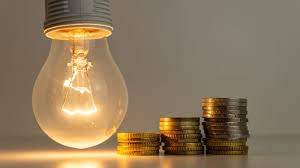
German Chancellor Olaf Scholz proposed a 200 billion euro ($194 billion) "defensive shield," including a gas price freeze and a reduction in fuel sales tax, to protect businesses and households from the impact of rising energy prices.
Europe's largest economy is struggling to cope with rising gas and electricity prices, largely due to a drop in Russian gas supplies to Europe, which Moscow blames on West sanctions imposed following its February invasion of Ukraine.
"Prices have to come down, so the government will do everything it can. To this end, we are setting up a large defensive shield," said Scholz.
The government plans to implement an emergency price brake on gas until spring 2024, with details to be announced next month. It is abandoning a planned gas levy intended to assist businesses struggling with high spot market prices.
A temporary price freeze on electricity will subsidize basic consumption for consumers and small and medium-sized businesses. The gas sales tax will be reduced from 19per cent to 7 per cent.
Germany is encouraging the expansion of renewable energy and the development of liquefied gas terminals as part of its efforts to reduce its reliance on Russian energy.
To help households and businesses weather any winter supply disruptions, particularly in southern Germany, two nuclear plants that were scheduled to close by the end of this year will now be able to operate until spring 2023.
"This is important relief," said Wolfgang Grosse Entrup, head of the VCI chemicals association. "Now we need details quickly, as firms increasingly have their backs to the wall."
The package will be paid for with new borrowing this year, as Berlin takes advantage of the suspension of a constitutionally mandated limit on new debt of 0.35 per cent of GDP.
Finance Minister Christian Lindner has stated that he intends to adhere to the limit again next year.
Lindner, a member of Scholz's Social Democrats and the Greens, said on Thursday that the country's public finances were stable.
"We can put it no other way: we find ourselves in an energy war," said Lindner. "We want to clearly separate crisis expenditure from our regular budget management, we want to send a very clear signal to the capital markets."
He also stated that the measures would act as a brake on inflation, which reached its highest level in over a quarter-century in September.
The steps, according to opposition conservative Markus Soeder, premier of Bavaria's southern state, sent the right signal.
"It gives industry and citizens confidence that we can get through the winter," he said.
(Source:www.usnews.com)
Europe's largest economy is struggling to cope with rising gas and electricity prices, largely due to a drop in Russian gas supplies to Europe, which Moscow blames on West sanctions imposed following its February invasion of Ukraine.
"Prices have to come down, so the government will do everything it can. To this end, we are setting up a large defensive shield," said Scholz.
The government plans to implement an emergency price brake on gas until spring 2024, with details to be announced next month. It is abandoning a planned gas levy intended to assist businesses struggling with high spot market prices.
A temporary price freeze on electricity will subsidize basic consumption for consumers and small and medium-sized businesses. The gas sales tax will be reduced from 19per cent to 7 per cent.
Germany is encouraging the expansion of renewable energy and the development of liquefied gas terminals as part of its efforts to reduce its reliance on Russian energy.
To help households and businesses weather any winter supply disruptions, particularly in southern Germany, two nuclear plants that were scheduled to close by the end of this year will now be able to operate until spring 2023.
"This is important relief," said Wolfgang Grosse Entrup, head of the VCI chemicals association. "Now we need details quickly, as firms increasingly have their backs to the wall."
The package will be paid for with new borrowing this year, as Berlin takes advantage of the suspension of a constitutionally mandated limit on new debt of 0.35 per cent of GDP.
Finance Minister Christian Lindner has stated that he intends to adhere to the limit again next year.
Lindner, a member of Scholz's Social Democrats and the Greens, said on Thursday that the country's public finances were stable.
"We can put it no other way: we find ourselves in an energy war," said Lindner. "We want to clearly separate crisis expenditure from our regular budget management, we want to send a very clear signal to the capital markets."
He also stated that the measures would act as a brake on inflation, which reached its highest level in over a quarter-century in September.
The steps, according to opposition conservative Markus Soeder, premier of Bavaria's southern state, sent the right signal.
"It gives industry and citizens confidence that we can get through the winter," he said.
(Source:www.usnews.com)





